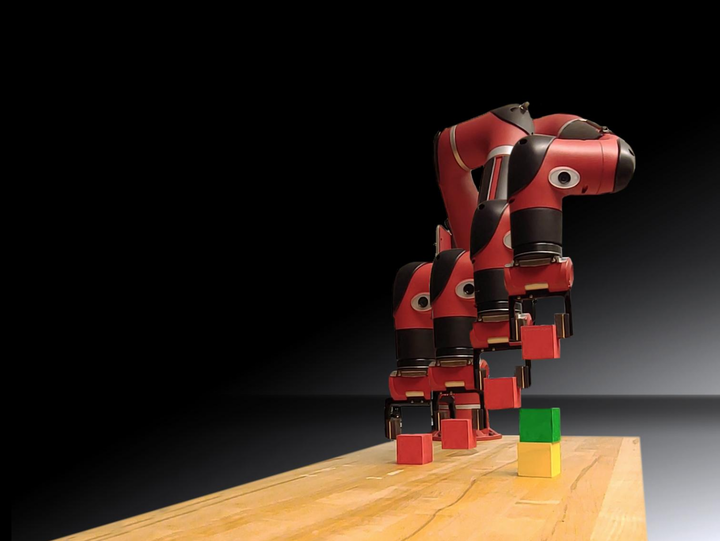Auto-conditioned Recurrent Mixture Density Networks for Learning Generalizable Robotic Manipulation Skills

Abstract
Personal robots assisting humans must perform complex manipulation tasks that are typically difficult to specify in traditional motion planning pipelines, where multiple objectives must be met and the high-level context be taken into consideration. In this paper, we introduce a state transition model (STM) that generates joint-space trajectories by imitating motions from expert behavior. Given a few demonstrations, we show in real robot experiments that the learned STM can quickly generalize to unseen tasks and synthesize motions having longer time horizons than the expert trajectories. Compared to conventional motion planners, our approach enables the robot to accomplish complex behaviors from high-level instructions without laborious hand-engineering of planning objectives, while being able to adapt to changing goals during the skill execution. In conjunction with a trajectory optimizer, our STM can construct a high-quality skeleton of a trajectory that can be further improved in smoothness and precision.